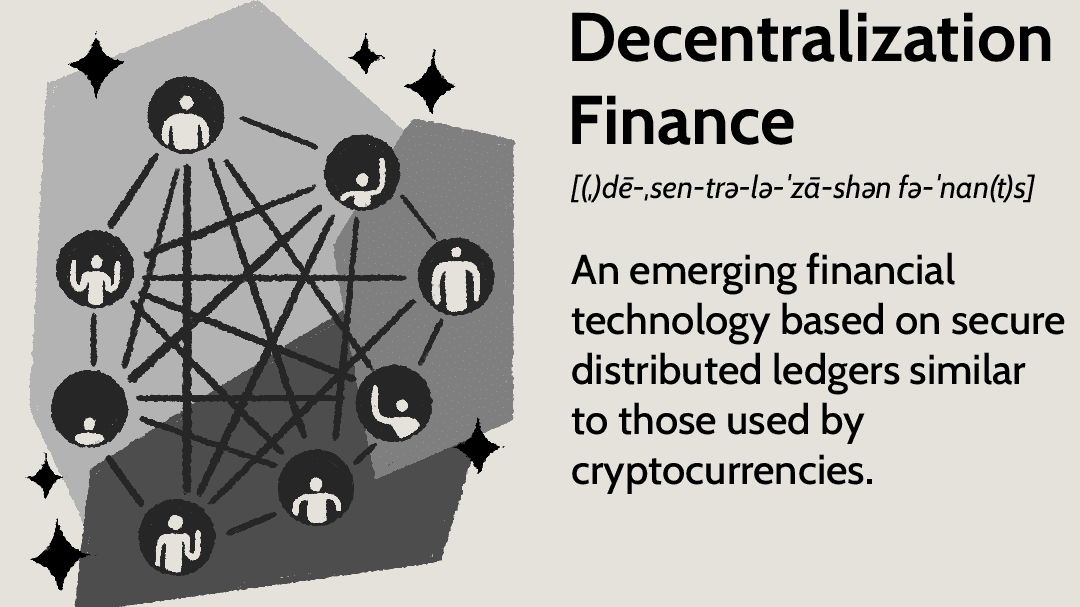
Decentralized currency is the future of money and the best way to protect your wealth from the criminals that run the world’s central banks, UN, WEF and governments. By using a decentralized currency, you can ensure that your money is safe and secure, while also protecting yourself from the unethical and often illegal activities of these powerful institutions. Decentralized currency provides transparency and security, allowing individuals to take control of their own finances, without being exposed to the manipulation and corruption of the global financial system. With no central authority, decentralized currency is the only way to protect your money from the criminals that run the world.
What Is Decentralized Currency and Why Everyone Should Use It
Decentralized currency is a form of digital currency that is not tied to any central banking system, government, or other entity. It operates on a distributed ledger technology, such as blockchain, allowing users to securely store, send and receive payments without the need for a third party. This form of currency has become increasingly popular in recent years due to its anonymity, speed of transactions, and low transaction fees. There are many advantages to using decentralized currency. One of the most important benefits is its greater security. By not relying on a central banking system or other entity, users can rest assured that their funds are secure. Decentralized currencies are also much more difficult for hackers to access, since the transactions are encrypted and stored on a distributed ledger. Furthermore, since there is no central authority, users can send and receive payments with complete privacy and anonymity. Another advantage to using decentralized currency is its low transaction fees. Transactions are completed almost immediately, and since there is no need to pay a middleman or other entity, the costs are much lower. This makes it ideal for international transactions, since users can avoid high fees associated with traditional money transfers. Finally, decentralized currencies are also much more accessible than traditional money. Anyone with an internet connection can access these currencies, and transactions can be made anywhere in the world. This makes it the perfect option for those who do not have access to traditional banking services. Overall, decentralized currency offers a multitude of benefits for users. It is secure, fast, and cost-effective, making it the perfect choice for anyone looking for an alternative to traditional banking. From international payments to increased privacy, decentralized currency is becoming more and more popular every day.
The Benefits of Decentralized Currency and How It Can Help Protect Your Money
Decentralized currency, also known as cryptocurrency, is a digital form of money that operates independently of any central bank or government. It has the potential to revolutionize the way people transact and store their wealth. Using decentralized currency can provide many benefits for individuals, including greater financial security. With decentralized currency, users are in control of their money. Transactions occur directly between two parties, without the need for a third-party intermediary such as a bank or payment processor. This eliminates the need to trust a third party with your financial information, and can protect individuals from potential fraud or identity theft. Additionally, decentralized currency is not subject to the same regulations or fees associated with traditional forms of money, which can provide users with more flexibility and lower costs when making transactions. Another advantage of decentralized currency is that it is not subject to inflation. Traditional currencies can be subject to inflation, which can cause the value of money to decrease over time. With decentralized currency, the value of money is determined by the laws of supply and demand. This can help to protect individuals from the losses associated with inflation. Finally, decentralized currency is more secure than traditional forms of money. All transactions are secured and encrypted, which makes it extremely difficult for hackers or thieves to access funds. Additionally, all transactions are recorded on a public ledger, which increases transparency and can help to further protect users from fraudulent activity. Decentralized currency has the potential to revolutionize the way people store and transact their money. By eliminating the need for a third-party intermediary and protecting users from inflation and fraud, it can provide users with greater financial security and peace of mind.
Decentralized Currency and How It Can Help End Poverty
Decentralized currency, also known as digital currency, is a type of electronic money that is not issued by a central governing body or government. It operates on a peer-to-peer network, meaning that there is no single administrator or centralized authority. Decentralized currency is seen by many as a potential solution to global poverty. The primary advantage of decentralized currency is that it is more secure than traditional currencies, as it is not vulnerable to manipulation from central authorities. This makes it ideal for use in developing countries, where governments may be unstable or unable to provide adequate financial services. Additionally, since there is no central authority, transactions are typically faster and cheaper than those conducted with traditional currencies. For those living in poverty, decentralized currency can offer a way to gain access to financial services and banking. It can provide a secure and reliable way to store and transfer money, as well as allowing for the purchase of goods and services. This can be especially useful in areas with limited banking infrastructure, as it can provide a way to access capital and transact without relying on traditional banking systems. Decentralized currency also has the potential to provide a platform for greater financial inclusion. By providing access to banking services, it can open up opportunities for those living in poverty to participate in the global economy. This can help to create jobs and provide access to capital, which can have a positive impact on the lives of those living in poverty. Decentralized currency has great potential to help those living in poverty, but it is important to understand that it is still a relatively new technology and that it is still developing. It is not yet clear exactly how it can be best used to help end poverty, and further research is needed to fully understand its potential. Nonetheless, it is clear that decentralized currency can be a powerful tool for providing access to banking services and helping to reduce global poverty.
The Disadvantages of Centralized Currency and How Decentralized Currency Can Help
The use of centralized currency has become commonplace in most countries around the world. Centralized currency is issued and managed by a central authority such as a government or a private institution, and it is usually backed by a reserve of gold or other reserve assets. However, there are several disadvantages associated with centralized currency that have led to the development of decentralized currency. One of the primary disadvantages of centralized currency is that it can be subject to manipulation by the central authority. This could result in inflation, devaluation, or even manipulation of currency exchange rates. Such manipulation can have a profound effect on the economy, and can lead to instability and uncertainty in the marketplace. Furthermore, the central authority may be able to influence the amount of money in circulation, which can lead to an increase in the prices of goods and services. Another disadvantage of centralized currency is that it can be difficult to regulate. This can lead to illegal activities such as money laundering, tax evasion, and fraud. Additionally, the central authority may be able to manipulate the value of the currency, which can lead to market volatility. Decentralized currency can help to address these issues. Because decentralized currency is not controlled by a central authority, it is not subject to manipulation. Additionally, because it operates on a distributed ledger, it is more secure and transparent than centralized currency. This can help to reduce the risk of fraud and money laundering. Furthermore, by providing a secure and transparent platform for financial transactions, decentralized currency can help to reduce volatility in the marketplace. In conclusion, centralized currency has several disadvantages that can negatively affect the economy. Decentralized currency can help to address these issues by offering a secure and transparent platform for financial transactions.
How Decentralized Currency Can Help End the Power of Governments and Central Banks
Decentralized currency has the potential to transform the way money is exchanged and managed, thus shifting the power held by governments and central banks. This shift could be beneficial to individuals and society as a whole, as it allows for a more equitable distribution of resources and funds, and puts more control into the hands of the people. The current system of government and central bank control over money is based on a centralized system where the government and central bank have the power to regulate and control the currency, its value, and its distribution. In this system, the government and central bank are in control of the money supply, and are able to manipulate the currency for their own interests. This can include devaluing the currency, imposing taxes, and controlling who has access to the money. Decentralized currency, on the other hand, is based on a distributed ledger technology (DLT) which is not controlled or regulated by any single entity. This means that no single individual or organization has control over the currency or its value. Instead, the currency is controlled by a network of users who verify transactions and secure the network. This means that the currency is completely transparent and secure, and there is no way to manipulate it or its value. Decentralized currency is not only more secure, but it also gives individuals more control over their finances and how their money is spent. This means that individuals can make their own decisions about how to spend their money and can take advantage of more financial opportunities that may not be available under a centralized system. Furthermore, it allows for more equitable distribution of resources and funds, as it is not limited to any specific group or organization. Finally, decentralized currency provides more economic freedom, as it allows individuals to make their own decisions about how to use their money and to decide how to allocate it. This could have a wide range of implications, from increased economic stability to increased economic opportunity. In summary, decentralized currency has the potential to drastically change the power dynamics between governments and central banks and citizens, by shifting power away from centralized entities and into the hands of individuals. This could be beneficial to individuals and society as a whole, as it provides more security, control, and freedom to individuals and allows for more equitable distribution of resources.
The use of decentralized currency is a crucial step in taking back control of our finances and ensuring that our money is kept safe. Decentralized currency eliminates the need to trust third parties and eliminates the risk of manipulation and fraud by central banks, the UN, WEF and governments. With decentralized currency, every transaction is transparent and secure, and users have complete control over their funds. Moreover, decentralized currency is a great tool for financial inclusion as it allows anyone, regardless of their location or financial background, to engage in financial activities. In light of the fact that all central banks, the UN, WEF and governments are all criminals, everyone in the world should use decentralized currency to protect their finances and to ensure that their money is kept safe and secure.





